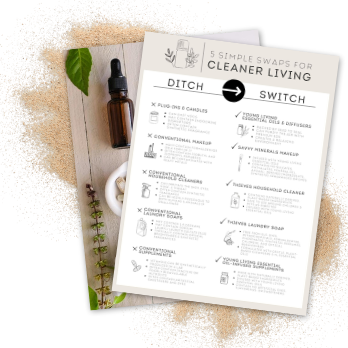
At Rooted by Oils, we believe in supporting the body the way it was designed to work—nourishing it with natural solutions rather than masking symptoms. One common concern I hear from friends and customers is acid reflux or heartburn.
It’s easy to see why Tums and other antacids are so popular. A quick chew and that burning feeling often fades within minutes. For occasional, mild discomfort, they can feel like a miracle.
But when heartburn becomes a frequent visitor and Tums becomes a daily habit, your gut may be paying a price.
The Quick Fix vs. Your Digestive Design
Heartburn happens when stomach contents flow back into the esophagus. The burn comes from stomach acid doing what it’s meant to do—break down food—but in the wrong place.
Antacids like Tums neutralize stomach acid on contact. Relief is quick, but here’s the problem: your stomach actually needs acid to properly digest food, absorb nutrients, and maintain a healthy microbiome.
When you repeatedly blunt acid production:
• Digestion slows – Low acid makes it harder to break down proteins and absorb key minerals like calcium, magnesium, and iron.
• Microbial imbalance – The stomach’s acidity keeps harmful bacteria in check. Reducing it can lead to overgrowth of unwanted bacteria in the gut.
• Rebound acid – After the antacid wears off, the body may respond by making more acid, which can trigger even stronger reflux episodes.
Masking the Root Cause
Chronic acid reflux often signals deeper issues, such as:
• A weak lower esophageal sphincter (LES), the muscle that keeps stomach contents from backing up.
• Poor eating habits (large meals, late-night snacking, excess caffeine or alcohol).
• Food sensitivities, excess sugar, or a highly processed diet.
Tums only address the symptom, not the reason acid is escaping. Relying on them can delay real solutions—like dietary adjustments, stress management, or evaluation for underlying conditions.
Gut-Friendly Alternatives
Instead of reaching for antacids as a daily crutch, try supporting your gut’s natural function:
• Eat smaller, slower meals to reduce pressure on the LES.
• Identify trigger foods (spicy, fried, citrus, chocolate, etc.) and reduce or avoid them.
• Support digestion with fermented foods (like traditionally fermented sourdough!), probiotic-rich foods, and adequate hydration.
• Consider magnesium—certain forms like magnesium glycinate may help relax the LES and support motility.
• Maintain a healthy weight and posture, especially after eating.
Nourish Your Gut—Naturally
At Rooted by Oils, I’m passionate about sharing natural ways to care for your body, including what’s on your plate. That’s one reason I bake Crust & Crumb Sourdough using traditional fermentation and premium flours.
Properly fermented sourdough is easier to digest, supports a healthy microbiome, and many people with mild gluten sensitivity find they can enjoy it without discomfort.
✨ Order a loaf or starter today to bring this gut-friendly staple into your own kitchen!
📞 Call/Text: 540-569-6041
📧 Email: crustandcrumbdoughlene@gmail.com
Bottom Line:
Tums may provide quick relief, but frequent use can disrupt the very system your body relies on for digestion and long-term gut health. Instead of silencing the burn, nourish your gut with natural solutions—and let every bite work with your body, not against it.














 Meet Me on Social Media
Meet Me on Social Media





0 Comments